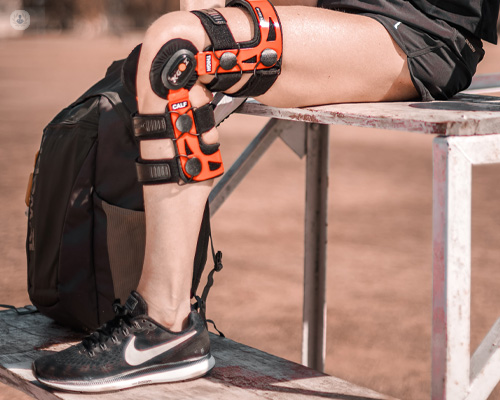Is ACL reconstruction right for you?
Written by:Rather common among athletes and active people, ACL tears can interrupt your life. Though, sometimes they are less severe and may not require such measures as surgery. Professor Kuntal Patel, a leading consultant orthopaedic surgeon, clearly explains when surgery is required and when it may be avoided.

What is ACL reconstruction?
Anterior cruciate ligament (ACL) is one of the strongest ligaments in your body and is integral to the stability of the knee joint. ACL injury is a reasonably common sporting injury. If the ACL is completely torn (or high-grade partial tear), it can cause functional problems in relation to the knee joint and instability related symptoms (giving way sensation). ACL reconstruction essentially involves re-building the ACL to regain the stability of the knee joint. Hamstring tendons are commonly used to reconstruct the ACL. There are other alternative options as well.
When would I need ACL reconstruction?
If ACL injury is suspected, MRI scans are performed to confirm the clinical diagnosis. If the scan shows ACL is completely torn or if there is a high-grade partial tear, then ACL reconstruction should be considered. This is particularly warranted if you have functional instability of your knee and if your knee gives way. This is usually apparent during sporting activities but may also occasionally manifest during day-to-day activities. If you are physically quite active and regularly indulge in exercises/gym/sports and if the knee is in a reasonably good condition (with no significant arthritis), ACL reconstruction is generally the preferred treatment.
What are the benefits of ACL surgery?
ACL reconstruction helps to restore the stability of the knee joint. It prevents instability of the knee joint and helps resume normal/strenuous activities including return to sports. It also helps to prevent injury to the cartilage (meniscal injuries) by preventing recurrent giving way of the knee.
Are there any alternative treatment options to ACL surgery?
Partial ACL tears can be treated without surgery, in terms of physiotherapy and rehabilitation. If there is complete ACL tear but you do not have any significant instability related symptoms (which will depend on your lifestyle and activities), then surgery can be avoided. Knee braces are also available for ACL deficient knees, which can provide some external support. These can be used as and when required on a long-term basis.
What are the possible complications, and do they outweigh the benefits?
ACL reconstruction is generally a very successful operation. However, as with any surgery, there are risks involved with ACL reconstruction surgery. These include a small risk of infection, bleeding or clots (DVT or PE). Some residual numbness around the scar is often noted. Some patients may notice slight residual laxity of the knee after ACL reconstruction. If there is further significant injury to the knee, there is a risk of re-rupture of the reconstructed ACL. Overall, the benefits outweigh the risks.
To have a consultation about an possible ACL injury, go to Professor Patel's and schedule a visit.


